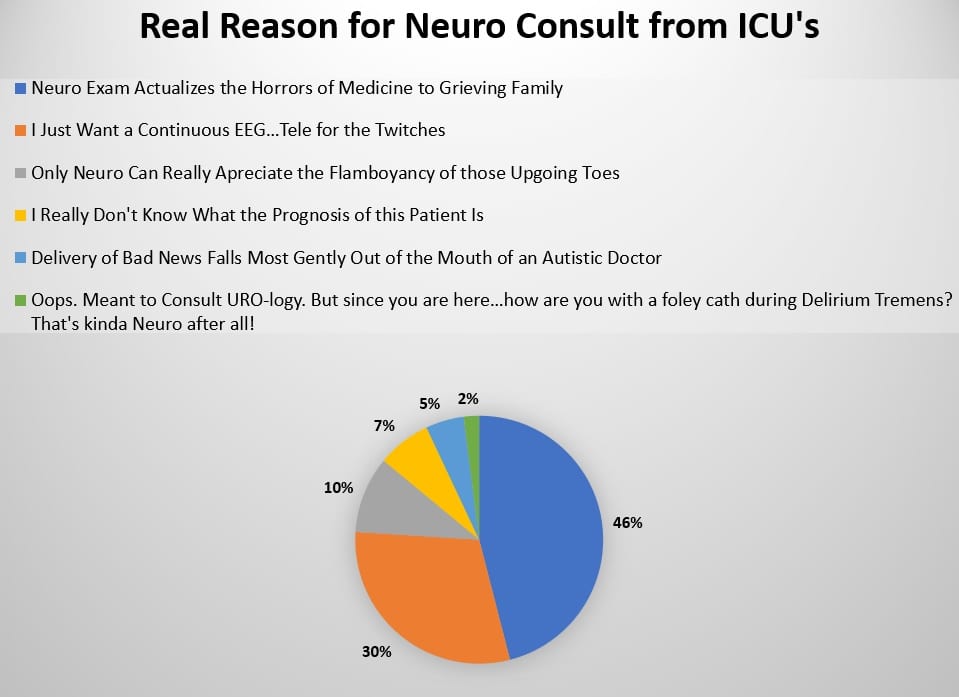 Neurology undeniably holds the monopoly to such insights as, “The prognosis following an hour of anoxia is guarded at best and likely very poor.” Their ability to foresee these abysmal futures has been long thought to be the impetus for numerous stimulating consults.
Neurology undeniably holds the monopoly to such insights as, “The prognosis following an hour of anoxia is guarded at best and likely very poor.” Their ability to foresee these abysmal futures has been long thought to be the impetus for numerous stimulating consults.
However, a new survey of ICU providers has uncovered another aspect of the prowess that makes them indispensable in the care of the critically ill. The inhumanity of turning off sedation to assess a patient’s ability to feel pain in various body parts is off-putting enough that it can speed an otherwise lengthy goals-of-care discussion. One respondent comments, “I have one consultant I can count on to leave especially obvious bruising. She is really a wonder. I find that she is at peak form when called for a STAT brain death exam on a weekend night call.”
Respondents to survey report otherwise expected motivations including the desire for continuous EEG by which to interpret otherwise frightening muscle movements, desire for camaraderie in appreciation of an elicited exam finding, actual ignorance of prognosis, desire for neuro to deliver bad news, and accidental mistake in which Urology was the intended victim.
These findings are sure to revolutionize medical education. If medical students were trained to torture patients more effectively, neurology consults in the ICU could be rendered a rarity within our lifetimes.







